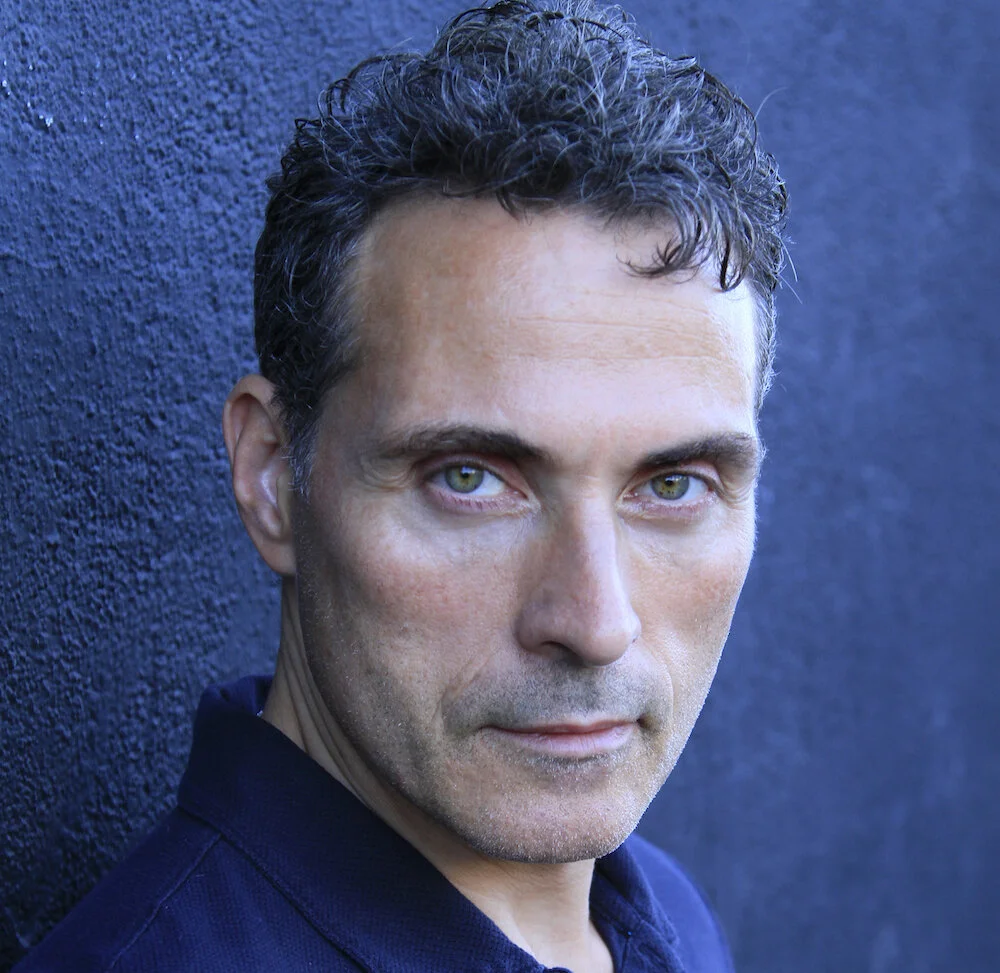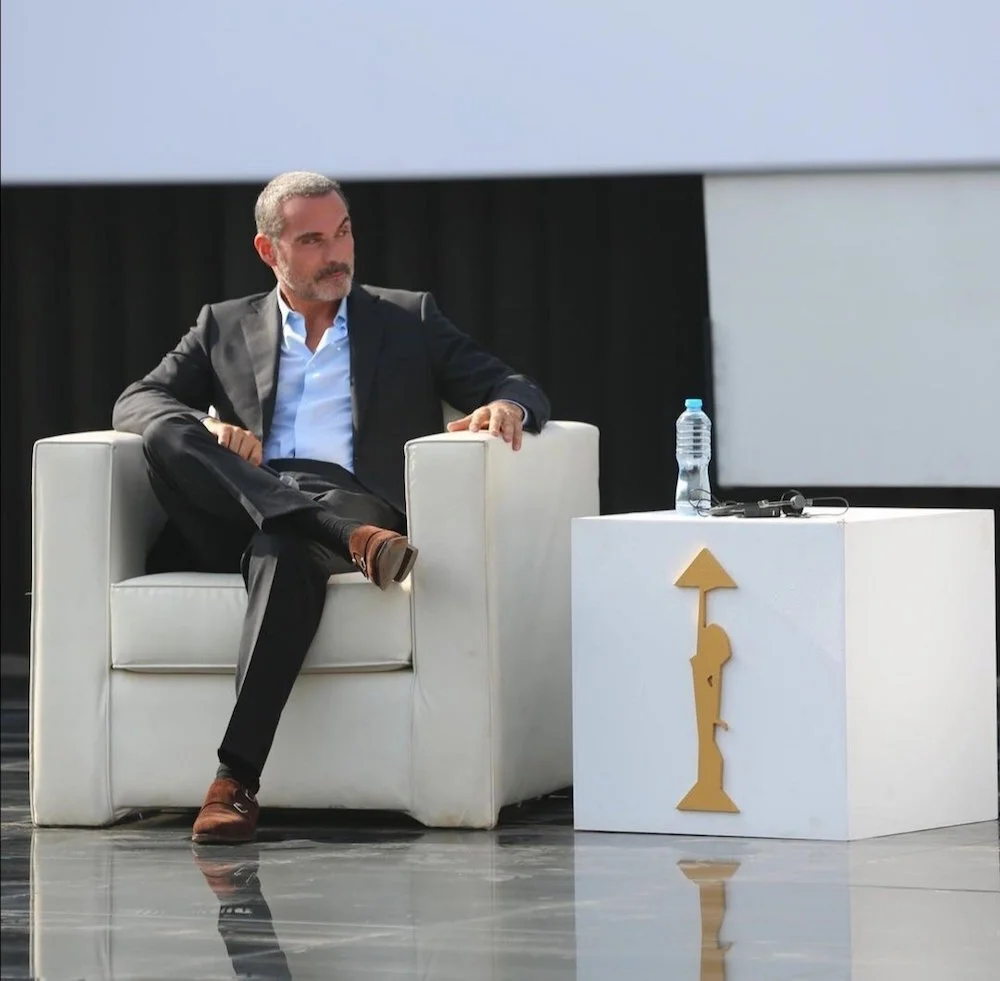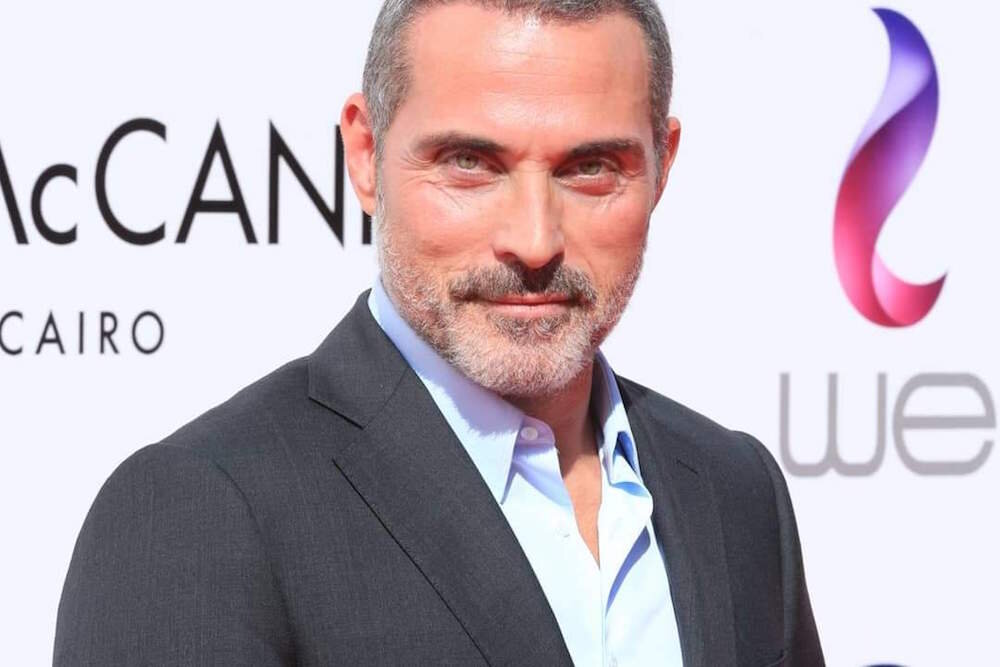The ambiguous Fortinbras son in Kenneth Branagh’s cinematic version of ‘Hamlet’'.
The lone John Murdoch who wakes up without memory and with the need to figure out why he’s wanted for a series of murders in ‘Dark City’.
The spicy Count Adhemar who adds his own dark charisma to the otherwise vanilla flavors of ‘A Knight’s Tale’.
Jasper, the ex we really wish Kate Winslet would end up with in ‘The Holiday’, despite his obvious narcissism.
But also Aurelio Zen, the Italian detective with a penchant for stylish suits in the short-lived top-notch TV series ‘Zen’. Not to mention short but meaningful cameos in various films, series both on TV and streaming and of course countless theater roles made memorable by this great talent with his trademark throaty voice. The list could go on and on of course, because I’m speaking about Rufus Sewell.
But recently the world has pressed pause for all of us, and Sewell’s reality is no exception. Instead of despairing, facing an uncertain future — you know most actors live by that saying “you’re only as good as your next role” — Sewell found his inner balance and managed to secure a part in one of the first major productions filmed in the midst of the pandemic. I’m talking about the most anticipated title of next year (or the year after, depending on how this whole worldwide mess goes) — ‘Old’ by M. Night Shyamalan.
And then, Rufus Sewell went to Egypt. To the Cairo International Film Festival to be exact, in early December, to introduce their opening film ‘The Father’, written and directed by Florian Zeller. Sewell adds a degree of mystery to Zeller’s directorial debut and that’s one film you’ll need to watch when it hits U.S. shores this winter.
While in Cairo, Sewell also took part in a masterclass and presented, along with CIFF president Mohamed Hefzy, the Lifetime Achievement Award to Oscar-winning screenwriter Sir Christopher Hampton.
Since “virtual is the new black” as Cairo Industry Days Head Aliaa Zaky so perfectly pointed out in a Facebook post, I got to interview Rufus Sewell on Zoom while the actor was in Cairo — with the hustle and bustle of a film festival happening all around him. As a journalist who specializes in interviews, I have to say that I’ve never interviewed anyone like Sewell: funny, insightful, but also ready to steer me in the right direction when I went wrong. While replaying it to write it out, I found the interview fascinating and heard myself not so much in the driver’s seat, as I’m accustomed to during a Q & A, but rather enjoying a passenger’s side ride into the life, love and career of one of the most charismatic actors of our time.
I wanted to convey that fully, so I’ve cut little, if anything out. No filters, no editing — except where we talked about ‘The Father’ which will come later when that film is released.
For now, just the real Rufus Sewell.
Well, there you are in Cairo, having arrived from LA and in the midst of a worldwide pandemic. What made you say yes to this brave new journey around the world?
Everyone is being very very careful here. And regular testing. Also I’m very proud of the film, and very flattered to be asked. And I’d just come back from doing ‘Old’ and thought things as they are I might not work for a while. But it would be nice to have some date in the future that I can actually go and do a thing. (laughs) and this is it. This is my thing for the next few months probably.
You mean, you’re going to go to film festivals around the world?
No, I just meant this today! Literally this, today. I’m probably going to go back to not working for a few months and back to being a dad. This was just having a date, when I did a thing.
I didn’t mean do festivals around the world. Just to clarify, before you print it.
I saw photos of the red carpet and opening ceremony of the festival and it seemed like someone was finally getting back to normal — or at least a new normal. How does it feel in Cairo at the moment and how does it differ — apart from the obvious differences — from Los Angeles at the moment?
It wasn’t as back to normal as you’d thing. They were very strict with the masks up until the point you got onto the red carpet. For photographs you’d take them off and then put them back on. I mean, I sat through the entire evening with my mask on. We were spaced apart and only took the masks off to come up and do the speeches and then back on. It was pretty responsible. I think the idea was a red carpet, spaced apart with masks on, and it was open air, so I think it was pretty well handled. I wouldn’t have been comfortable with anything else.
As far as I’m concerned, who cares about back to normal! I wish certain countries had done it more vigorously and more properly you know. I think, however long it takes and however extreme it has to be, just do it.
You’ve just finished ‘Old’ with M. Night Shyamalan. It’s a top secret project of course but how was it working with him? Did you learn something new on that set?
The experience was wonderful. He assembled a troupe that was like a theater troupe. There was an equality about it all. We all mucked in together, we were all there all day, on this one set, all living together. And he is one of these directors who very much plans out what he’s doing. Like [Akira] Kurosawa, Spielberg, whatever. He’s got the story boarded which means he knows where you’re standing, he knows what the shot is, it’s worked out. I’m used to having more input into the rehearsal process — but there isn’t a right and there isn’t a wrong. Some of my favorite films were done his way. And some pretty awful films have been done the way I’m talking about. So there is no right or wrong, it’s just about the way your expectations are. For me, the adjustment was turning up and being told what the strict parameters were physically, geographically. I explained to him that I’m not used to this, and he said “I know you’re not used to it, but you’ll make it work.” That’s all I needed to hear, that basically you find out what the limitations are, and then you find your freedom within that.
And actually I ended up really responding to that and we had a great working relationship. It’s just a different way of working, that I hadn’t quite encountered before, and I thought I would have more trouble with — but ended up loving it.
I really enjoyed working with him, and have no idea about the finished product. I’ve never done anything quite like it before, it’s extraordinarily challenging and in different ways, the film. But you know, I hadn’t worked for nearly a year, some of that deliberately, was waiting for a particular job which didn’t happen because of Covid and suddenly the restrictions made it impossible to do. So when this came up, I was just incredibly grateful to be able to work at all, and aware that I didn’t expect it, I leapt at the opportunity, I’ve never done anything quite like it…
That’s why I say, having this date to come and do this festival, for me was like, OK, there is something for me in a couple of month’s time that I’m going to go do. That can be the thing that I do this year. I’m not under any rush to get back into my career, there are more important things. So as far as I’m concerned I’m very very lucky to have done anything at all. And very proud of this job. Haven’t seen it, don’t know how it’s going to be but I loved the experience.
Sir Christopher Hampton said he loves working with actors. Who is typically your favorite crew member on a set?
I think the most important place is the hair and make up room. The atmosphere there, the opportunity to have fun and it’s always the kind of atmosphere, where it’s kind of your home — the first place you see at the beginning of the day and the place you go to at the end of the day. Hair and make up is incredibly important I think in terms of personalities and atmosphere and support. I love them.
You’ve mastered the part of the man we love to hate and hate to love. Where is that elusive romantic hero that you could play so well? And would you entertain playing that role?
Entertain doing that?! What are you talking about?? My natural ability is with comedy. For a while I felt frustrated with all the bad guy roles. I have learned to do it but it’s not my comfort zone. I’m telling you that nine out of ten things I get offered are that [bad guys] and most of them are too bad to do. I’ve played those parts.
Next question!
All I’m saying the parts you’re talking about I’ve played. And quite recently. If I’m offered something like that which is not very good, I won’t do it. I’m not saying I want to play romantic heroes, I’m just saying I don’t want to be playing just one thing. It’s the same conversation I’ve had for thirty years.
I know, I keep reading it in all your interviews, and here I am asking you as well.
All I want is just to keep playing different roles, so if they end up being one thing… I’m not saying they’re not interesting but to do anything more than once becomes a challenge and the real challenge is finding a career out of the examples that are worth doing. If you get offered ten bad guy roles in a row, they might all be too bad to do. So I just wait for the one that’s good. And of course anything that is not that I’ll leap at, but it’s normally still the case with the parts I get offered. They’ve within a very limited range that don’t represent what I am particularly good at. But it’s just the way it is.
As an actor the worst thing must be to feel like you’re on remote control…
It’s not even that, it’s not my strong points. It’s not about keeping me satisfied — it’s just that my best work is always not that.
What was the last movie you watched in a theater?
You never know what is going to be the significance of something until… You never know when it’s going to be the last time you’re going to see someone and you might waste that opportunity. Let me see, I wonder if it’s something I would like to represent my movie-going habits. Actually, it was ‘The Invisible Man’ which I quite enjoyed. That was the last thing I went to see. Which is just the type of film that does work best with an audience. Because it was a shocker.
You were surrounded by an audience, two nights ago in Cairo, at the Opera House for the opening night screening of ‘The Father’. Do you personally miss audiences?
Do you mean as an actor if I miss audiences?
As an actor but also as a movie or theater goer.
There is something about seeing films with an audience, especially certain types of films that I really enjoy. In terms of as an actor do I miss an audience? No. I do a play every couple of years if I can and it’s coming up to a couple of years right now. Most of my reading is about theater at the moment, not even consciously. I’m really pining to do a play and I hope that the environment makes that possible and I hope that something really challenging gets offered to me eventually, but it might well be a couple of years before that happens.
I don’t know if it’s just the audience that I miss, or the freedom I’ve realized comes from doing something over and over again. You reach, in relaxation and repetition a level of freedom and naturalness. It’s a different thing I do miss actually. The audience? I rather like not knowing who is out there, I like this kind of faceless void. I don’t necessarily like to know when people are out there because then I end up just playing it to them. I remember doing a play recently and I heard a laugh in the audience I thought I recognized, and did the entire play to that laugh. And then realized it was someone else. I don’t think it did me any harm but I prefer it when the first night is done and the performances become numberless and you can just get lost in the thing. That’s what I miss.
Sewell flanked by CIFF President Mohamed Hefzy, left and Sir Christopher Hampton
Have you found the pandemic has changed the way you relate to people? Has it changed you?
I don’t know. In terms of the way I think about my life, and I think about my career, there was something really liberating about the future as an idea. Kind of being in suspension and kind of evaporating… It was good for me. I don’t mean to be cavalier about the terrible toll of the disease but I mean in terms of having days that turned numberless and featureless like in the theater. And just being about “you live your life.” I find that when I’ve been happy, when I look back on my life, it’s been more or less when I’ve been in sort of a rut. Despite the way we think of our life and happiness in terms of achievements and events, my experience is that I’m happiest when there is not a lot happening actually. When you are kind of doing the same thing every day, you know. That’s why I like theater because I like doing the same thing every day — I’m not nearly as rock and roll as I used to think. So having this opportunity to kind of just read books and have days that weren’t leading into something with no expected results, with my daughter half the time, finding a little routine within that — I actually benefited from it and it reinforced something that was happening to me anyway. To detach myself from the idea of results — with what I do, my career.
I thought, there might be a time when I’ll work again, it might be in a year, it might be in a year and a half, let’s just live simply, be grateful for how much worse things could be. Always visualize, even things you’re complaining about, you are lucky to have these things to complain about because there are so many worse things. And to make peace with that.
I would like to hold on to some of that, to find peace at the top of the mountain and to maintain it when you come back to the city. I would like not to throw away some of the lessons, the attachments when things come back to normal. It will be a challenge.
I think it was positive in some ways to have a routine, for those of us who don’t live a routine kind of life.
That’s exactly what I mean. When people ask “do you miss the audience” or do you miss your work? I guess there is an element of that, but when I say I love theater, it’s because I love getting a sandwich at the same place every day. I like the same walk, after a while I realized that’s what I really love about theater — it’s a luxury for me because most of my life is not like that.
I was filming, doing ‘Old’ and looked forward to coming back to doing what I do, which is not much. After a year of looking forward to work, there I was working and looking forward to not working.



